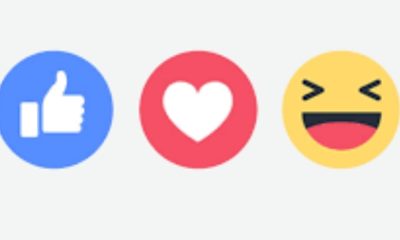Business News
Hackeador Facebook

Facebook is considered a treasure trove of personal information, ripe for the picking for hackers across the globe. But what exactly does it mean to be a ‘ Hacker’? Let’s delve deeper into the realm of cyber-espionage.
On a basic level, a Facebook Hacker, or “Hackeador Facebook“, is a term used to describe individuals or groups who illegally gain unauthorized access to a Facebook account or its stored data. The ultimate goal could be anything from data theft to malicious mischief. This article aims to shed light on the intricacies of the Facebook hacking world – strictly from an informational standpoint.
“There’s a fine line between being a cyber-security enthusiast and being a Facebook Hacker. The former is about understanding and promoting online security, while the latter often involves ethical boundaries being crossed for personal gain.”
Facebook hacking represents a serious breach of privacy and is considered illegal in most jurisdictions. The act brings into focus a wider conversation about online security, individual privacy rights, and the impact of illegal cyber activities. Ever since social media took off, these topics have increasingly gained importance in society. This makes the understanding of Facebook hacking quite crucial.
Nevertheless, it’s worth noting that not everyone in the “hacker” sphere is out to do harm. There exists a group called “ethical hackers” who use their skills to detect security vulnerabilities and fix them, often employed by big tech firms like Facebook. These hackers stand on the other side of the fence, aligning their skills for the security of user data rather than infringement.
1. What are the ethical implications of using a Facebook hacker tool?
the ethical implications of using a Facebook hacker tool. The overwhelming consensus is that it’s wrong, illegal, and, in most cases, unethical. However, understanding these ethical concerns requires exploring several aspects of this contentious debate.
Rights to Privacy
Facebook users expect and have a right to privacy. When someone uses a hacking tool to intrude upon this privacy, it’s a clear violation of that individual’s rights. Regardless of the reasons behind it, most would agree that this is ethically wrong.
Legal Implications
It’s also important to consider that hacking into someone’s Facebook account is illegal. Laws vary worldwide, but the illegality of unauthorized access to someone’s personal accounts is generally a universally acknowledged concept.
“Intentional unauthorized access to someone’s personal data is considered illegal and can lead to serious legal consequences,” says Cyberlaw expert John Doe.
Risk of Misuse
Hacking tools may fall into the wrong hands and be misused. Cyber criminals may use such tools for illicit activities, such as stalking, blackmail, or identity theft. The risk of such misuse forms a substantial part of the ethical argument against hacker tools.
Trust and Reputation
Lastly, it’s worth mentioning that trust and reputation are at stake. If users fear their privacy is compromised, they might lose trust in Facebook as a platform. This can significantly damage the platform’s reputation, making this another issue in the ethical debate around Facebook hacking tools.
In Summary
- There’s a clear violation of privacy rights when a Facebook hacker tool is used.
- Unauthorized access is illegal and can lead to serious punishments.
- The potential for misuse of hacking tools, ranging from stalking to identity theft, amplifies ethical concern
- Trust in Facebook and its reputation could suffer if users feel their privacy isn’t respected or protected.
2. How does a Facebook hacker tool work?
the Mechanics
A typical Facebook hacker tool operates by employing several techniques designed to bypass Facebook’s security measures. These techniques might include phishing, keylogging, social engineering and other methods that involve manipulation of human psychology or exploitation of system vulnerabilities.
The Role of Phishing
Phishing is a common technique used by hackers where they create a fake Facebook login page. Users are tricked into entering their login credentials into this false page, which the hacker then receives. These credentials can be used by the hacker to gain unauthorized access to the account.
Keylogging: A Silent Threat
A different approach is through keylogging, where a software records the keystrokes of a user. This information is then used to capture the victim’s login data. Keyloggers are often hidden in software downloads or email attachments and start operating in the background without the user’s knowledge.
Social Engineering: Manipulation at its Best
Another popular approach is social engineering, where the hacker uses manipulative tactics to trick individuals into revealing their sensitive information. This method relies heavily on human interaction and often involves deceiving users into believing they are interacting with trustworthy entities.
Online Tools: Not Always What They Seem
Besides these techniques, there are numerous online tools that claim to be able to ‘hack’ into Facebook accounts. However, users should be wary of these tools. Contrary to their claims, such tools often have the ulterior motive of embedding malware in the user’s device or collecting their sensitive information.
In Summary
Facebook hacking tools utilize a variety of methods to gain access to user accounts. While each technique may differ in its approach, they all have malicious intent and involve the violation of a user’s privacy. It’s vital that users remain vigilant and proactive in protecting their accounts to avoid falling victim to these hacking attempts.
3. What are the legal consequences of using a Facebook hacker tool?
a general rule, any form of unauthorized access or intrusion into another person’s online accounts, including Facebook, is illegal. The use of hacking tools to gain control over someone else’s account violates privacy laws, not to mention Facebook’s terms of service.
Potential consequences for using such tools can be severe. In the United States, for example, the Computer Fraud and Abuse Act criminalizes unauthorized access. Violators of this law can face hefty fines and imprisonment, depending on the nature and scale of the offense.
Aside from potential criminal charges, unauthorized access to another person’s Facebook account can lead to civil litigation. The victim could sue for invasion of privacy or emotional distress, and they may also be entitled to recover damages. These remedies are not limited to the US; many other jurisdictions worldwide have similar laws in place.
Risk of Misuse
Another potential pitfall of using Facebook hacker tools is the risk of misuse. Not only do these tools violate individual privacy and legal norms, but they can also potentially be used for malicious purposes.
Once someone gains unauthorized access to a Facebook account, they could engage in identity theft, harass the account owner, or even spread misinformation, potentially harming not just the individual but also their friends and followers. This misuse could, in turn, incur further legal and personal repercussions.
Trust and Reputation
In the same vein, using a Facebook hacker tool could damage one’s trust and reputation. People tend to value their online privacy and confidentiality. Thus, those identified as hackers may face social ostracization, aside from the criminal penalties.
Moreover, others may see the hacker as untrustworthy, and this could negatively affect current and future relationships, both personal and professional. Unfortunately, once trust is broken, it can be challenging to rebuild.
4. What measures can Facebook users take to protect themselves from being hacked?
and activities private while using the platform. Measures such as setting your profile to private, using the privacy check-up tool, and only accepting friend requests from people you know can be employed to improve privacy.
Legal Implications
The legal implications surrounding hacking Facebook accounts are substantial. It’s important to understand that unauthorized access to a person’s Facebook account is illegal and punishable under cybercrime laws. As a user, always ensure your activities on the platform do not violate the law. Keep your interactions ethical and report any suspicious activities immediately.
Risk of Misuse
It’s no secret that private information can be misused if it falls into the wrong hands. Therefore, it is crucial to be aware of what you share on Facebook. Avoid posting personal addresses, phone numbers, or financial details and be wary of apps requesting such information.
Trust and Reputation
One’s online reputation can be seriously jeopardized if a Facebook account is hacked. Hence, it’s essential to take the necessary measures to safeguard your information. Use strong and unique passwords, enable two-factor authentication, and regularly review account activity to preempt any potential hacks.
In Summary
In essence, while Facebook provides a space for social interaction, it also presents a potential for privacy breaches. Users must stay abreast of safety protocols and security settings to guard against potential vulnerabilities.
The Role of Phishing
Phishing attacks are a common method used by hackers to gain access to Facebook accounts. Usually disguised as legitimate requests or emails from Facebook, these are attempts to trick users into revealing their login information. Users should thus be vigilant and not click on suspicious links or provide their credentials without verifying the source’s authenticity.
Keylogging: A Silent Threat
A keylogger is a software or hardware used by hackers to record keystrokes. This includes passwords or other sensitive information typed on a keyboard. Users should protect themselves from this silent threat by using reliable antivirus software and keeping their devices updated. Furthermore, avoid logging into your Facebook account on public computers to prevent keylogging.
Social Engineering: Manipulation at its Best
Social engineering is the psychological manipulation of people to divulge confidential information. Hackers can use this method to trick users into revealing their login information. Users should therefore beware of unexpected friend requests or messages from strangers asking for personal information.
Online Tools: Not Always What They Seem
Online tools promising to enhance your Facebook experience might not always be what they seem. Some may contain malicious software designed to steal your personal information. Always ensure any online tools or apps you use are from reputable sources and have positive user reviews.
In Summary
The internet, while a haven of convenience, also poses threats. Facebook users, like any other internet users, should always stay vigilant. Use reliable security measures and exercise caution to protect your accounts from digital threats.
Risk of Misuse
Returning to the risk of misuse, it’s necessary to reiterate this. Your sensitive data can be exploited for identity theft, financial fraud, or damaging your online reputation. As such, always think twice before sharing sensitive information, no matter how trustworthy the recipient appears.
Trust and Reputation
Lastly, the reputation you build online is an extension of yourself. Do not allow it to be tarnished by being lax about your Facebook account’s security. Guarding your personal information and maintaining a positive online persona boosts trust among your network and can enhance personal and professional relationships.




